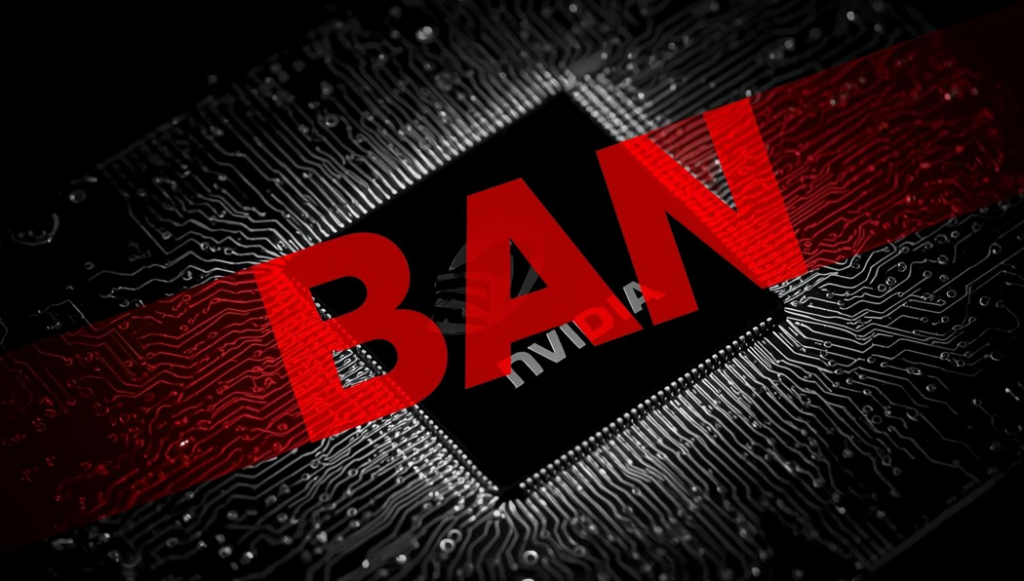AI Chip War Heats Up: U.S. Blocks Nvidia, China Responds with Total Ban

Key Highlights:
- U.S. government has officially blocked Nvidia from selling its advanced Blackwell and B30A AI chips to China.
- China has responded with a new rule banning foreign AI chips from all state-funded data centers.
- Global AI chip war deepens as both nations tighten technology controls
White House Blocks Nvidia’s Advanced Blackwell Chip Sales to China
The Trump administration has decided not to allow Nvidia to sell its latest Blackwell AI chip to China. White House spokeswoman Karoline Leavitt confirmed the decision, stating, “The Blackwell chip is not something we’re interested in selling to China right now.”
This decision follows months of speculation about whether a scaled-down version of the chip might be cleared for sale. The move aligns with President Trump’s strategy to maintain America’s technological edge in artificial intelligence and prevent China from acquiring high-end U.S. hardware.

US Treasury Secretary Calls Blackwell the “Crown Jewel”
U.S. Treasury Secretary Scott Bessent described Nvidia’s Blackwell chip as the “crown jewel” of American AI innovation. He indicated that sales to China might be reconsidered only after the chip becomes outdated in 12 to 24 months. According to Bessent, Nvidia’s rapid pace of innovation means that the Blackwell could soon be several generations behind the company’s latest models.
Nvidia’s Market Collapse in China
Nvidia’s position in China has deteriorated sharply. Once controlling 95% of the Chinese AI data center market in 2022, the company now holds no market share. CEO Jensen Huang has expressed hope that Nvidia will eventually return to the Chinese market, but admitted there are no current plans to do so. Nvidia is reportedly redesigning its B30A chip in hopes of meeting future U.S. export conditions.
China Retaliates with Ban on Foreign AI Chips
In a direct response, Beijing has ordered that all new data centre projects receiving state funding must use only domestically produced AI chips. Projects that are less than 30% complete are required to remove or cancel any foreign chip orders, while those further along will be reviewed individually.
This directive represents one of China’s most aggressive steps toward achieving AI chip self-sufficiency. It is expected to benefit domestic manufacturers such as Huawei, Cambricon, and MetaX. However, industry analysts warn that Chinese AI chips still lag behind Nvidia’s products in performance and software ecosystem support, potentially slowing China’s AI development.
The Global AI Divide Widens
The escalating U.S.–China chip restrictions are reshaping the global AI landscape. The United States aims to secure national security and preserve its technological dominance, while China seeks independence from U.S. technology and to strengthen its domestic semiconductor ecosystem.
While American tech giants like Microsoft, Meta, and OpenAI continue to build massive AI data centres using Nvidia’s most advanced chips, China risks falling behind in computing capacity despite gains in local chip production.
Both the U.S. and China are pursuing self-reliance in AI technology, setting the stage for a deeper divide in global innovation. The U.S. is safeguarding its AI lead, while China is accelerating its domestic semiconductor push.
Nvidia and other American chipmakers are losing access to one of the world’s largest markets, while Chinese chip firms stand to benefit, though at the cost of slower advancement in high-end AI capabilities.
Read More:
- NVIDIA’s Market Share in China Drops from 95% to Zero Amid US Export Restrictions
- China’s XPENG Shocks the World with Full-Stack Physical AI: Meet the IRON Robot and Flying Car
- Tech War Intensifies: China’s Lithography Breakthrough Challenges U.S. Semiconductor Edge
(via)
The post AI Chip War Heats Up: U.S. Blocks Nvidia, China Responds with Total Ban appeared first on Gizmochina.